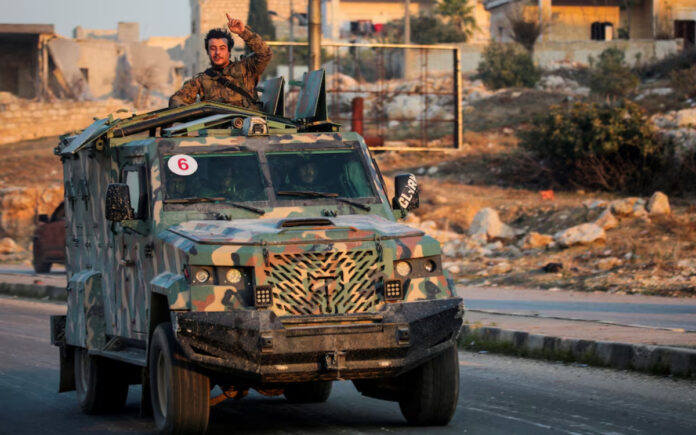Baghdad: Iraqi Shi’ite Muslim ruling factions and armed groups are grappling with a decision over potential military intervention in Syria. Sunni Islamist rebel forces, led by Hayat Tahrir al-Sham, have captured two cities in Syria and are advancing toward a third, raising alarms in Baghdad.
Iraq’s history with Sunni fighters based in Syria is marked by devastation. Thousands infiltrated Iraq following the 2003 U.S. invasion, igniting sectarian violence before emerging again in 2013 under the banner of Islamic State (IS), seizing vast territories.
Though the current rebel groups have distanced themselves from Al Qaeda and IS, their assurances of no ambitions in Iraq are met with skepticism by Iraq’s leadership.
Defensive Measures at the Border
Baghdad has mobilized thousands of troops from its military and the Popular Mobilization Forces (PMF), a coalition that includes Iran-aligned armed factions, along its border with Syria. While their primary orders are defensive, sources indicate that intervention may become a possibility depending on the situation, such as if rebels take Homs, Assad falls, or Shi’ite communities face persecution.
Falih al-Fayadh, leader of the PMF, reiterated Iraq’s stance during a televised address:
“The Iraqi government’s stance from the beginning has been that Iraq is not a side in this crisis. But it is not wise for there to be a fire in your neighbour’s house while you sleep reassured without thinking of what might happen.”
Balancing Alliances and Rebuilding Efforts
Iraq, a critical member of Iran’s Axis of Resistance, holds significant influence within the region. Yet, Prime Minister Mohammed Shia al-Sudani is determined to avoid escalating regional tensions, focusing instead on reconstruction efforts after decades of war.
Also Read | $1.8 Billion IPO: LG Electronics India Seeks to Leverage Booming Market
However, Iraq’s ruling coalition faces internal divides. While some factions with prior involvement in Syria favor intervention, others see it as destabilizing. This dynamic adds complexity to Iraq’s foreign policy, particularly as Foreign Minister Fuad Hussein expressed concern over Syria’s developments in talks with Syrian Foreign Minister Bassam Sabbagh.
Historical Context and Present Risks
Abu Mohammad al-Golani, leader of the Syrian rebels, has a contentious past. Once part of Al Qaeda in Iraq, he later established the extremist group’s Syrian affiliate before breaking ties in 2016. In a recent video, Golani appealed to Iraq’s Prime Minister Sudani to prevent PMF involvement in Syria, framing his group’s ambitions as strategic rather than expansionist.
Also Read | Hungary Becomes Refuge for German Retirees Seeking Affordable Living and Anti-Immigration Stance
An Iraqi government adviser remained unconvinced:
“They may claim to be in a different mood and a different group, but they very much look the same from Iraq.”
As the situation unfolds, Iraq faces a delicate balance between protecting its borders and avoiding entanglement in yet another prolonged conflict.



